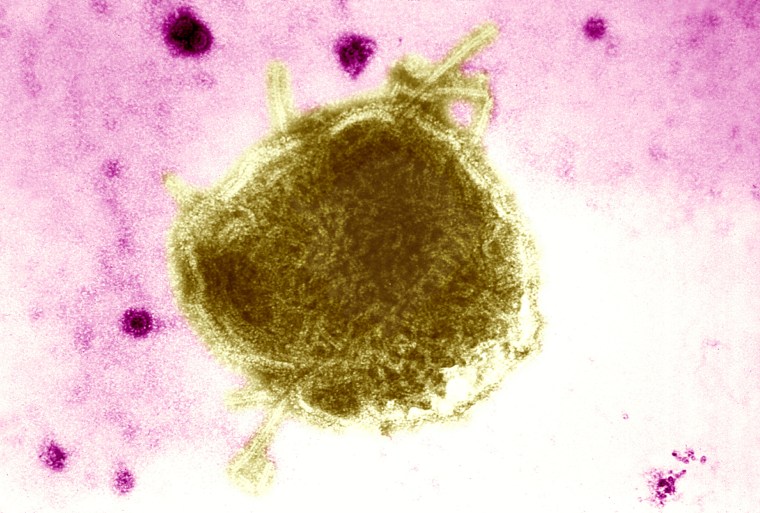Here’s another reason to get vaccinated against measles – researchers have found the measles virus makes kids’ immune systems “forget” most of what they have learned, leaving children vulnerable to other diseases for as long as three years.
The findings, published in the journal Science, help explain why deaths and illnesses from a range of diseases plummet in countries after they introduce measles vaccine campaigns.
"Our findings suggest that measles vaccines have benefits that extend beyond just protecting against measles itself," said Michael Mina, a medical student at Emory University who worked on the study while doing postdoctoral research at Princeton University.
"It is one of the most cost-effective interventions for global health."
"If you get measles, three years down the road, you could die from something that you would not die from had you not been infected with measles."
Measles vaccinations have been in the headlines in the United States because of an outbreak linked to Disneyland that infected 147 Americans. It shed light on a small but heated controversy over vaccinating children. Health experts say pockets of well-to-do vaccine doubters can help fuel outbreaks when they delay vaccination or refuse to vaccinate their kids at all.
Many people who refuse measles vaccines argue that measles is a relatively harmless childhood disease, and some even argue that a “natural” infection somehow strengthens the immune system. The findings of this study suggest they are wrong in more ways than one.
"We already knew that measles attacks immune memory, and that it was immunosuppressive for a short amount of time. But this paper suggests that immune suppression lasts much longer than previously suspected," said C. Jessica Metcalf, an assistant professor of ecology and evolutionary biology at Princeton who worked on the study.
"In other words, if you get measles, three years down the road, you could die from something that you would not die from had you not been infected with measles."
Measles was eliminated in the U.S. in 2000, but a few imported cases come in every year. These can spread if people are not fully immunized. Globally, there are around 20 million cases and more than 145,000 children die of measles every year.
It’s one of the reasons for global measles vaccination campaigns, and public health specialists have noticed something else happens after millions of kids in a country get vaccinated against measles: death rates from other infections go down, too.
Researchers have looked at why. Rik de Swart of Erasmus University Medical Center in the Netherlands and colleagues discovered it has to do with so-called memory T-cells, which “learn” to attack disease-causing germs. These are the cells that help protect people from a disease such as measles once they’ve been infected one time.
De Swart’s team discovered not only that measles kills off many of these T-cells, but that those remaining seem to forget everything else and focus solely on measles.
After seeing this study, Mina and colleagues looked at databases from countries such as the U.S., Denmark and Britain to see just how much infection rates went down after mass vaccination started.
“Reducing measles incidence appears to cause a drop in deaths from other infectious diseases."
The pattern was clear, says Bryan Grenfell of Princeton.
“Reducing measles incidence appears to cause a drop in deaths from other infectious diseases due to indirect effects of measles infection on the human immune system," Grenfell said. "At the population level, the data suggests that when measles was rampant, it may have led to a reduction in herd immunity against other infectious diseases."
The measles vaccine is usually delivered with two other vaccines – one against mumps, and another against rubella or German measles. But when they looked at the effects of pertussis vaccination alone, Mina's team didn’t see the same effect.
Other studies have suggested that vaccines can have broader benefits than simply protecting against a single disease. For instance, rates of heart disease go down among people who have been immunized against influenza. One recent study shows flu vaccines stimulate production of molecules that protect the heart.
